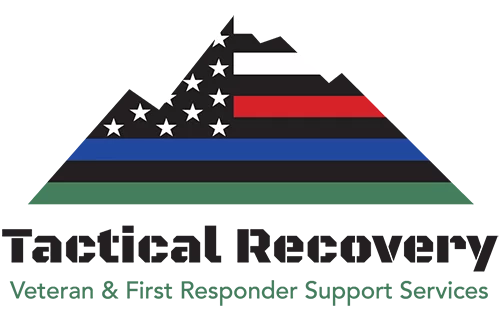Before the creation of the Tactical Recovery Program, substance use disorder (SUD) treatment centers and mental health facilities rarely understood how to approach care for Veterans, first responders, and active military personnel.
Tactical Recovery is a Veteran-centered approach to treating addiction and mental health disorders for the diverse group of people who protect the United States and its citizens. In addition, it involves the family and friends of these clients in the treatment plan, acknowledging their pivotal role in their loved ones’ recovery success.
Waypoint Recovery Center, with locations in Cameron and North Charleston, South Carolina, opens its doors to everyone. However, we want our Veterans to know that we’ve prepared programs to care specifically for them and their singular experience as the backbone of our nation. Keep reading to get a better idea about how Tactical Recovery functions and why it’s so successful for our patients.
Understanding How Tactical Recovery Works For Veterans in South Carolina
Precision medicine operates from the idea that customized care and tailored treatment are most effective for recovery from all ailments. Within the precision model, it’s paramount to get a full picture of your medical, social, psychological, and familial context as an individual and as a Veteran or first responder. Tactical Recovery employs the precision model to address SUDs and mental health disorders in Veterans and first responders. Each individualized treatment plan we create will include some form of the following evidence-based therapies and activities:
- Experiential Therapy
- Individual and Group Therapy
- Family Programs
Incorporating Experiential Therapy Into Tactical Recovery
Experiential therapy is a testament to the effectiveness of holistic treatment for SUDs and behavioral ailments. The theory is that talk therapy alone may not be fully effective in combating the issues our Veterans face. With activities like equine-assisted therapy, which involves caring for and connecting with horses, and art therapy, which includes painting, drawing, and sculpting, our clients have many avenues to work toward long-term healing.
Mindfulness and meditation are also techniques that we encourage during Tactical Recovery, as they train our residents to accept their thoughts, emotions, and experiences in the most non-judgemental way possible. This bolsters our Veterans as they embark on a journey of learning how to manage stress, triggers, and cravings.
All of our experiential activities are tailored to our service members and their dual identities as protectors and people.
How Individual Therapy Fits Into Tactical Recovery
Everything about our individual therapy approach is customized, down to assessment, planning, privacy, and confidentiality. During this type of therapy, you are the main priority, and your therapist exists to work alongside you to reach your goals and manage your mental health and wellness. We offer an array of different types of individual therapy, each of which will be catered to fit your individual needs:
- Cognitive-behavioral therapy (CBT)
- Expressive Arts Therapy
- Recreational Therapy
- Brain-based counseling
In addition, Waypoint’s group therapy experience provides the added component of community and connection with other Veterans. We understand that it’s easier to find a path forward when you’re surrounded by those who understand where you’re coming from.
Our Veterans Mean Everything, and So Do Their Families
Long-lasting success in sobriety and mental health depends largely on support from loved ones and peers. That’s why we include the family and friends of our patients in the Tactical Recovery program, ensuring that loved ones understand the nature of addiction and trauma, improve communication skills, and learn how to best support their loved one.
Develop a Deeper Understanding of Waypoint’s Tactical Recovery Program Today
Every Veteran’s mission included caring for the American public. It’s Waypoint Recovery Center’s mission to now care for those Veterans who put their lives on the line so that we could enjoy ours. Please don’t hesitate to contact us at either of our South Carolina locations in Cameron or North Charleston for more information or guidance in getting your loved one who served into treatment for addiction or a challenging mental health disorder.





